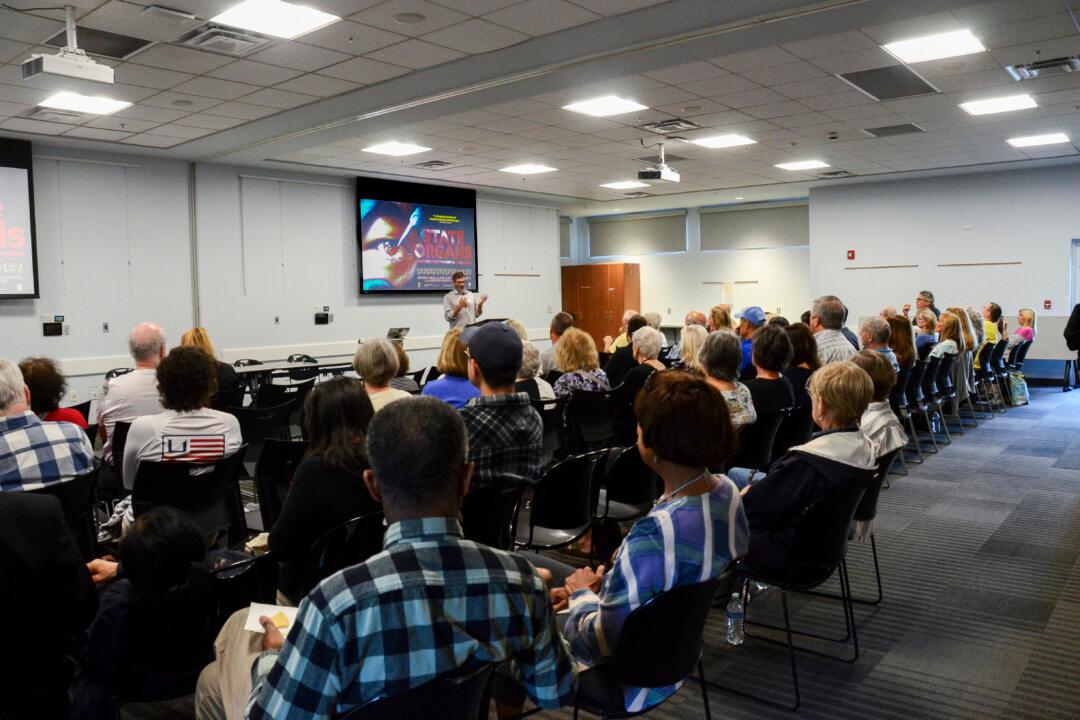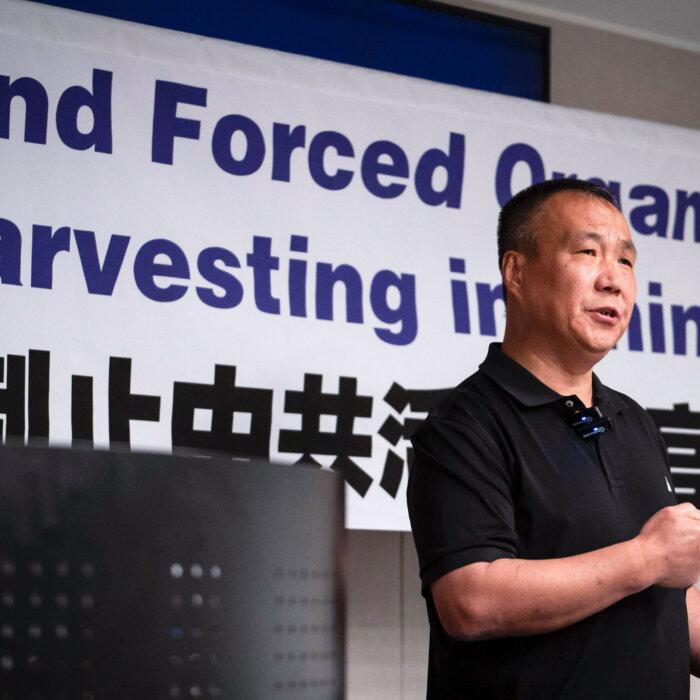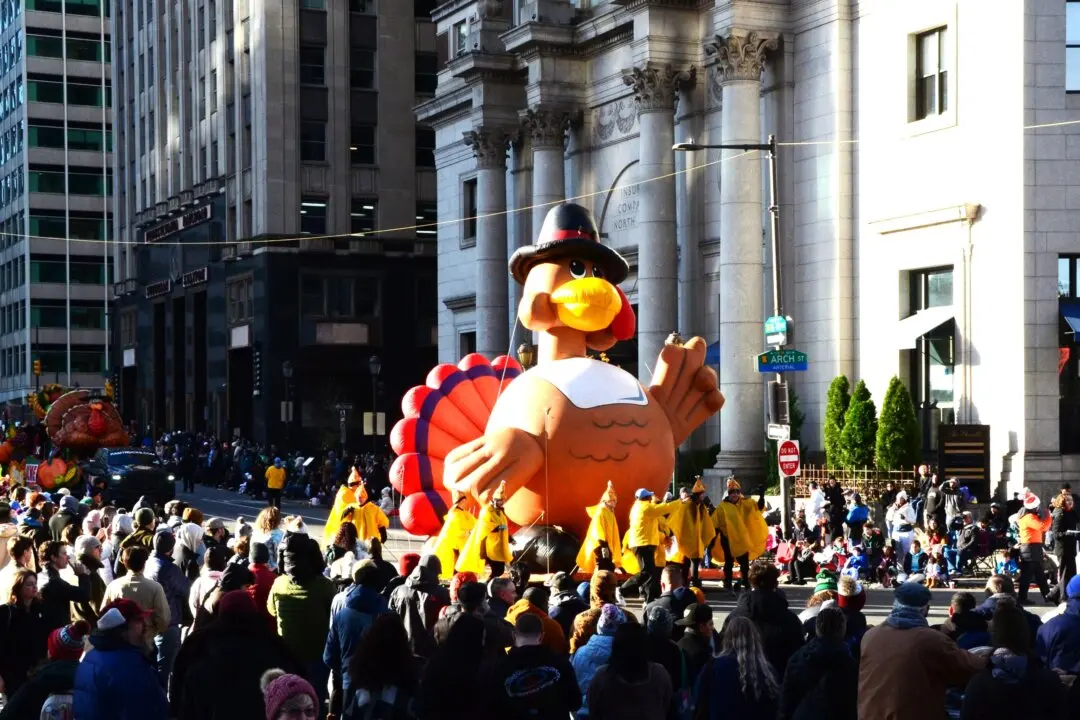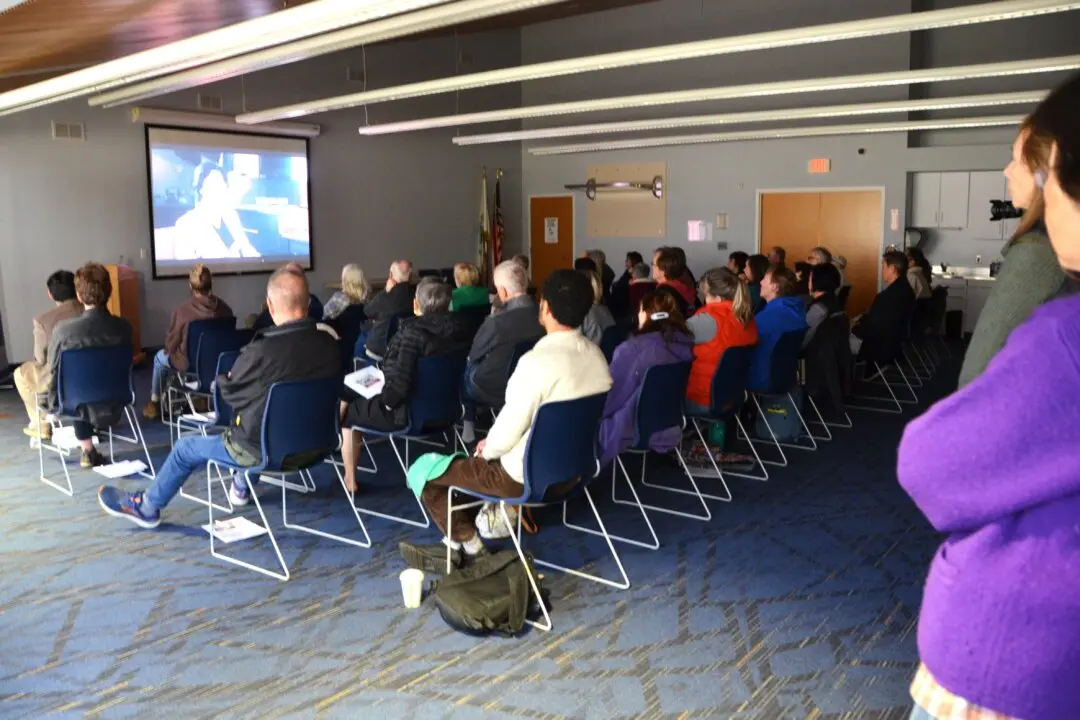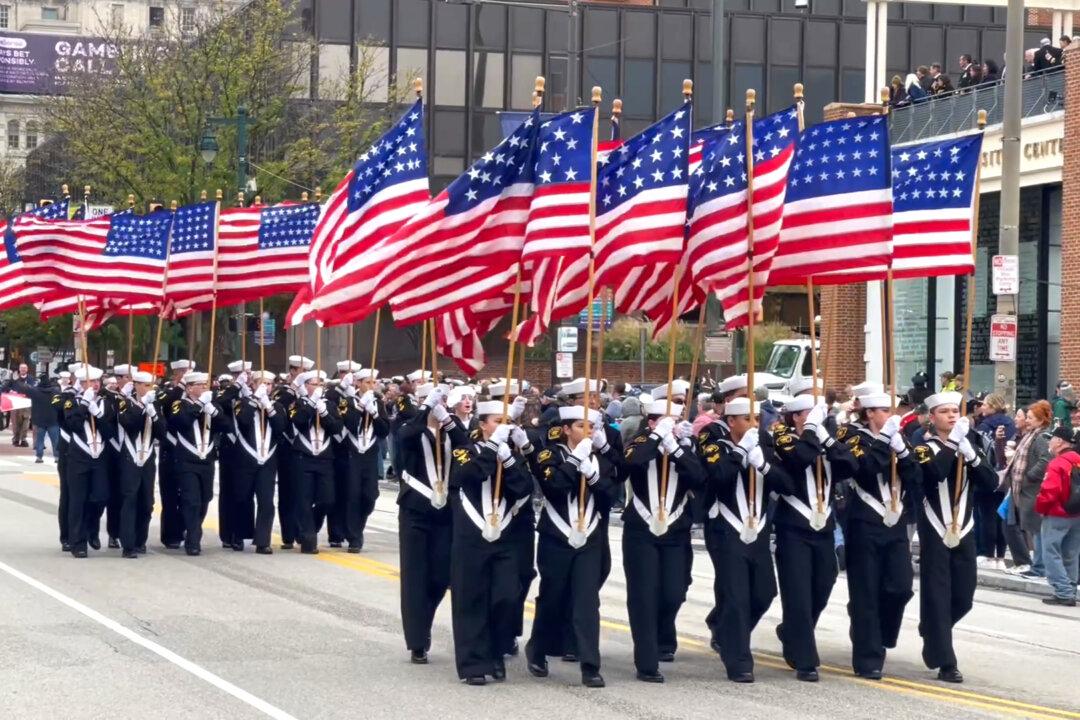On Oct. 3, dozens gathered at Lewes Public Library in Lewes, Delaware, for the screening of “State Organs,” a documentary exposing one of the darkest human rights abuses of our time—forced organ harvesting in China.
The screening, hosted by Ending Forced Organ Harvesting Rotary Satellite Club of CAAHT (EFOH.org) and co-sponsored by advocacy groups including Doctors Against Forced Organ Harvesting (DAFOH.org), Delaware Medical Freedom Alliance (DelawareMFA.org), and Greater Philadelphia Falun Dafa Association (GPFDA.org), also featured a panel discussion with experts and Cheng Peiming, the first known survivor of forced organ harvesting.
The 76-minute documentary, produced by Peabody Award-winner Raymond Zhang and scored by Emmy Award-winning composer Daryl Bennett, follows the haunting search of two families for their missing loved ones in China, revealing evidence of state-sanctioned forced organ harvesting.
Audience members were visibly moved, many expressing both shock and anger at the chilling reality portrayed in the film.
For those in attendance, the message was clear: people should stand against these atrocities and support legislative efforts like the Falun Gong Protection Act to ensure justice for the millions of victims who cannot speak for themselves.
A central figure in the discussion was Cheng, whose harrowing escape from China after being subjected to organ harvesting gripped the audience.
“When I realized what was happening, I knew I had to escape, or I would be killed for my organs,” Cheng said.
His testimony shocked many, particularly when he spoke of the countless others who were not as fortunate.
“Millions are still suffering,” he said. “I stand here today not just for myself, but for all the victims who cannot speak.”
Victor Carlstrom, a heart transplant recipient from Lewes, called Cheng’s story a “miracle of survival” and expressed his profound shock at the documentary’s revelations.
“What really hit me was that it wasn’t just condemned prisoners—they’re targeting people because of their beliefs. It’s an atrocity,” Carlstrom told The Epoch Times.
As a transplant recipient, Carlstrom was astonished to learn that in China, people can get a transplant in weeks.
“So many people here passed away, waiting for organs—not just hearts, other vital organs as well,” said Carlstrom. “It certainly implies that (in China) the organ-on-demand thing means they’re being taken not by people who pass away … It’s hard to understand any other cause or reason behind how they’re producing organ on demand.”
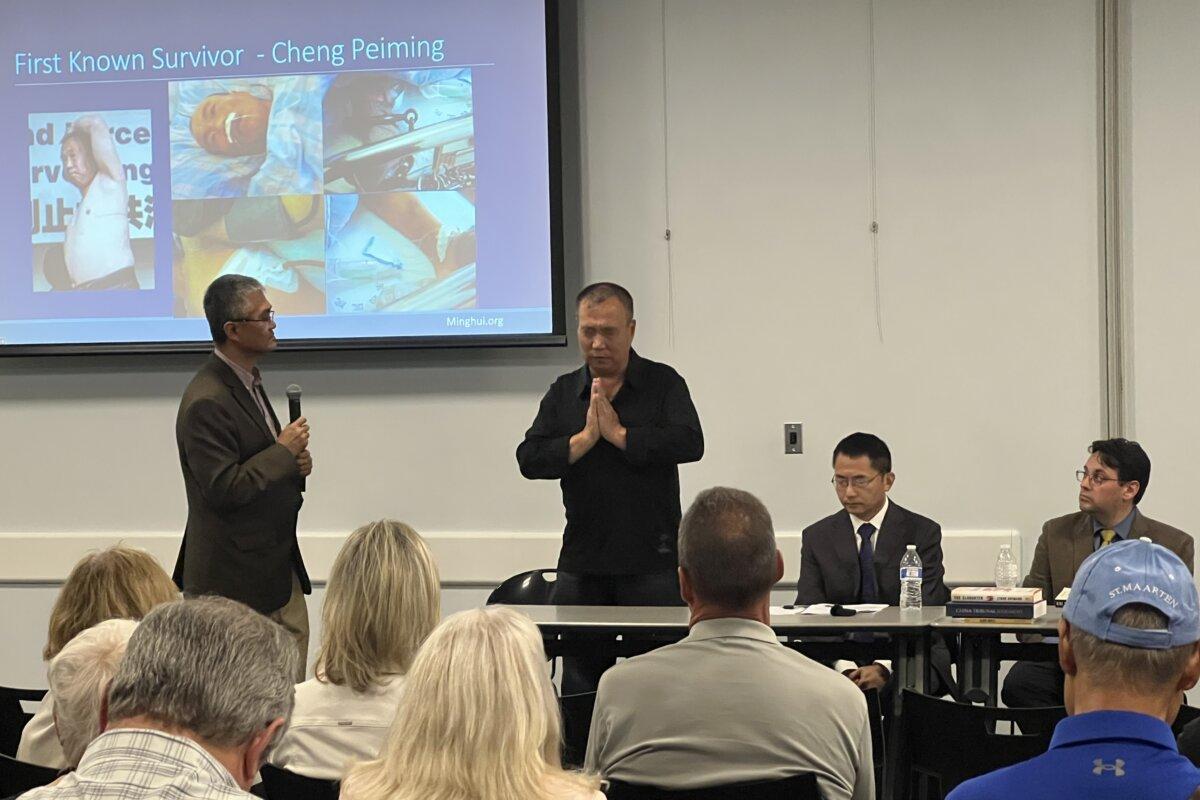
Calls for Conscience and Action
Abraxas Hudson, president of DMFA, delivered a passionate appeal to the audience to stand against the evil of forced organ harvesting.“It’s a horrifying story and a very sad reality. This level of criminal human rights abuse anywhere in the world is not okay,” Hudson told The Epoch Times. “A lot of people in America are apathetic because it’s happening thousands of miles away, and they don’t know what they can do about it … But we have to stand up against evil, and we have to protect the future by taking responsibility for the future we want.”
Hudson emphasized that raising awareness is the first step toward fighting such crimes.
He praised Cheng’s courage in sharing his experience. “The fact that he’s able to stand up and speak out here is amazing,” Hudson stated. “If everyone stands up against evil, it just dissolves and dissipates, same with tyranny or totalitarianism.”
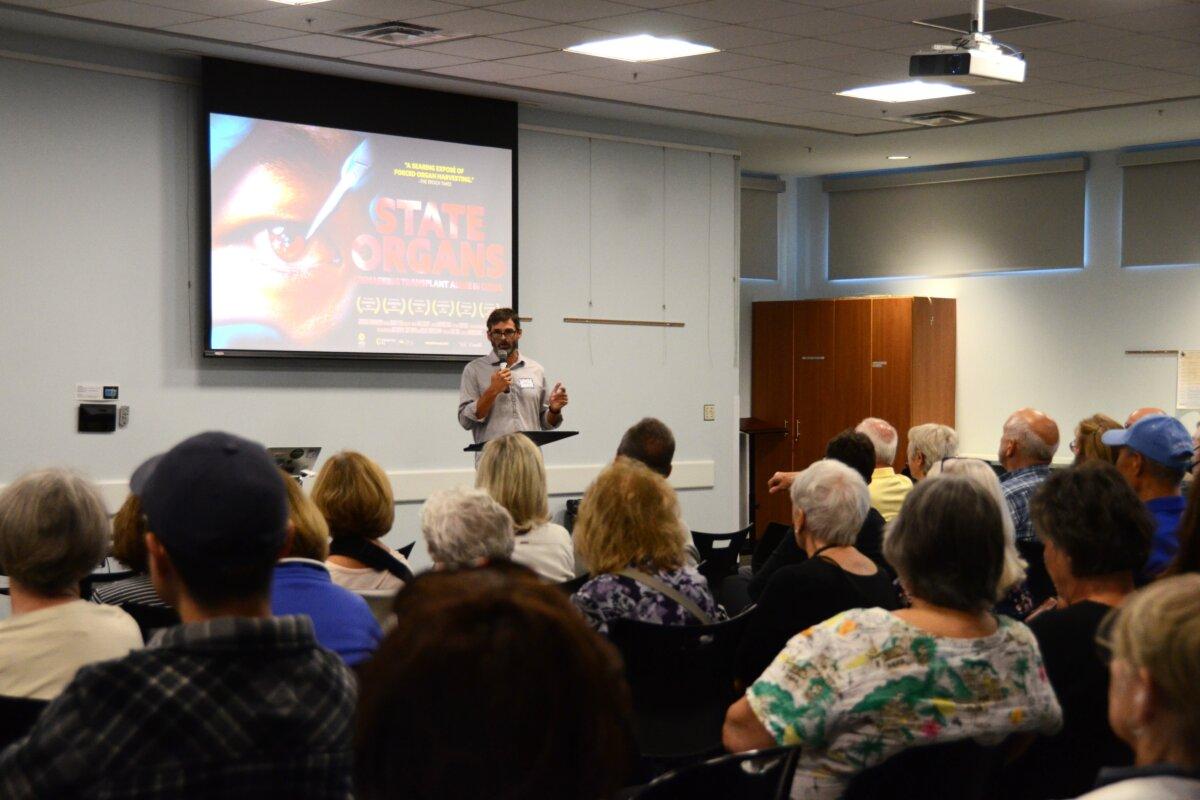
Hudson’s sentiments resonated with the audience, many of whom expressed a renewed sense of responsibility.
“That’s inhumane ... We need to get the word out to people. We need to understand what’s going on, and we need to get the people that we vote into power to make it stop,” said Janine Fitzgerald, president-elect of the Lewes-Rehoboth Beach Rotary Club, in an interview with The Epoch Times.
“I took pictures of all the screens,” added Linda Sidowski, secretary of DMFA. “I’m going to explore different ways to make my voice heard and help those who are being persecuted.”
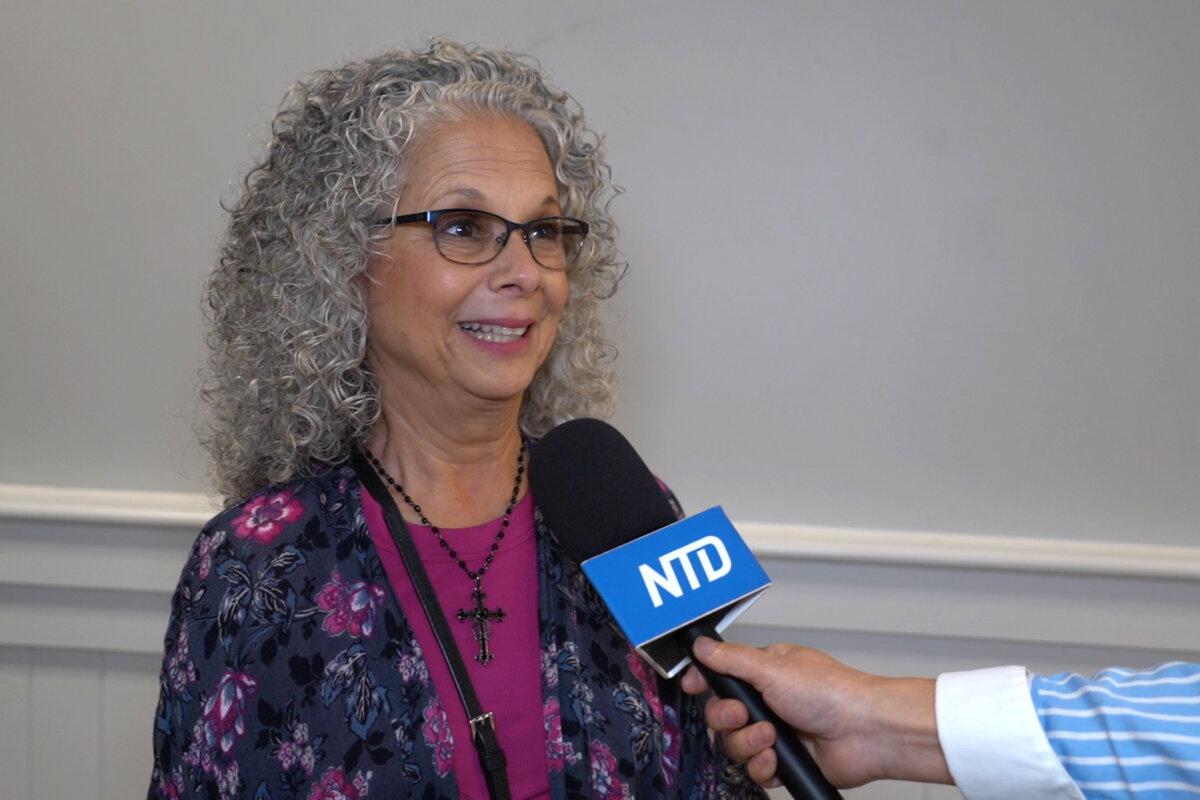
Audience Reactions: Shock and Demand for Justice
The emotional impact of the documentary was palpable. Deborah Bergman, a retired educator, was deeply moved by the connection drawn between the atrocities in China and the Holocaust.“The comparison of Nazism during World War Two and what’s going on now—we’re doing the same thing. We’re pretending it doesn’t exist, but it’s existing. And if it can exist for one religious group, where are they going to stop?” she told The Epoch Times.
Constance Higgins, another attendee, called for more awareness and action. “I signed the petition to go to our senators, and I want to write them a personal note to encourage them to do something about it,” she said.
Carlstrom expressed disbelief that such an atrocity could be so underreported. “How haven’t the media in United States really latched on to this and made a bigger deal out of this story, because it truly is incredible?” For Carlstrom, the bill represents a critical opportunity to hold the perpetrators accountable and prevent Americans from becoming complicit in these atrocities.
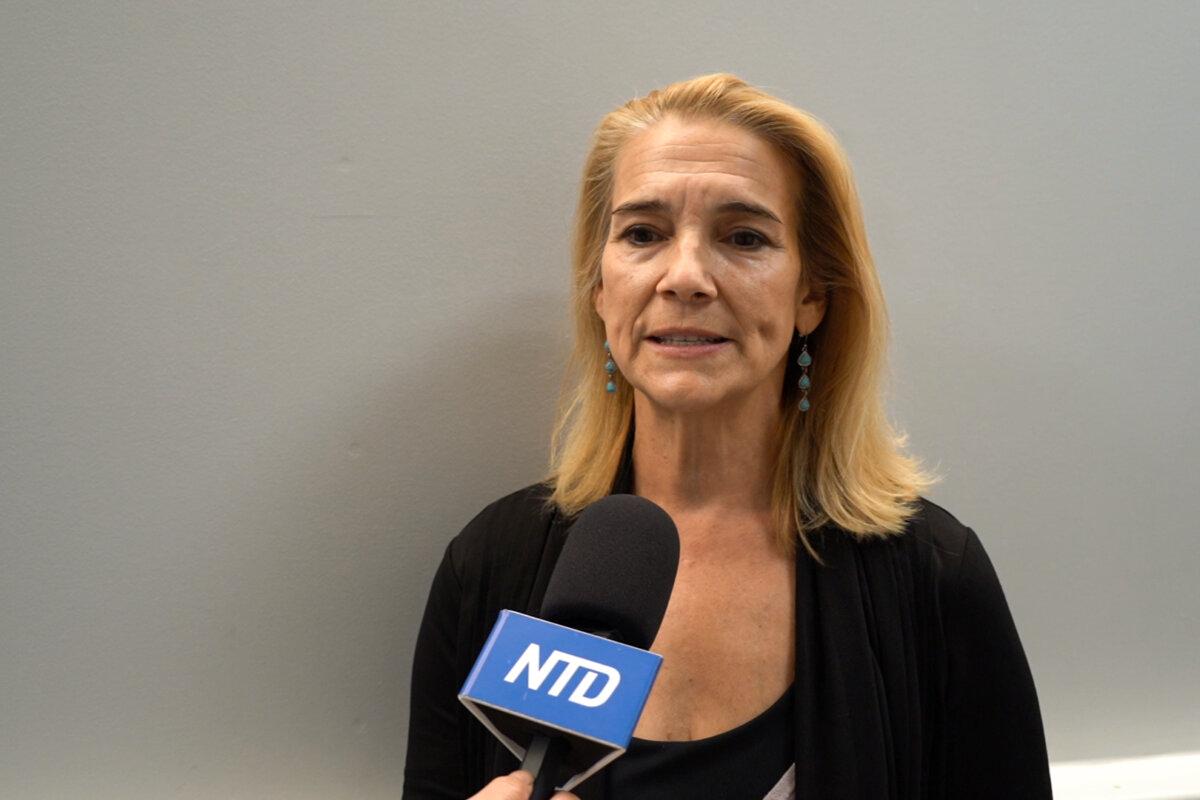
The Global Impact
The documentary and subsequent discussion highlighted the broader global implications of forced organ harvesting. Dr. Jessica Russo, a representative from DAFOH, explained how the Chinese regime’s control of the transplant industry has led to a thriving international black market for organs.“Westerners who travel to China for transplants are unknowingly complicit in this system of mass murder,” she said. “We need stricter regulations, such as the Falun Gong Protection Act, to prevent Americans from seeking transplants in countries where human rights abuses are rampant.”
As the event concluded, there was a clear sense of urgency among attendees. “Forced organ harvesting is just beyond comprehension. I’m not going to sleep tonight. I don’t think half these people here will either,” said Fitzgerald. “The world has to come together and get rid of all the power hungry individuals who treat people as mere commodities, not people.”
Hudson closed the evening with a message: “In the presence of evil, we must be brave. That’s the only way we can stand up against it and stop it.”
